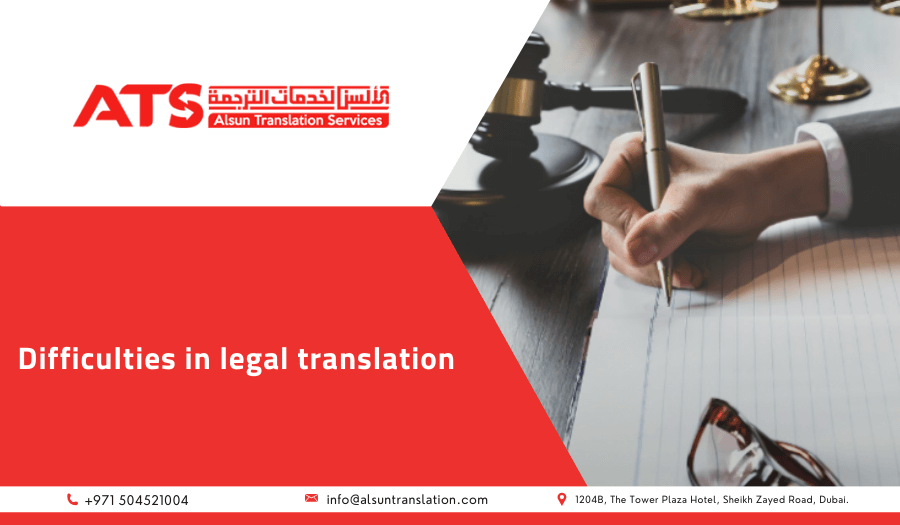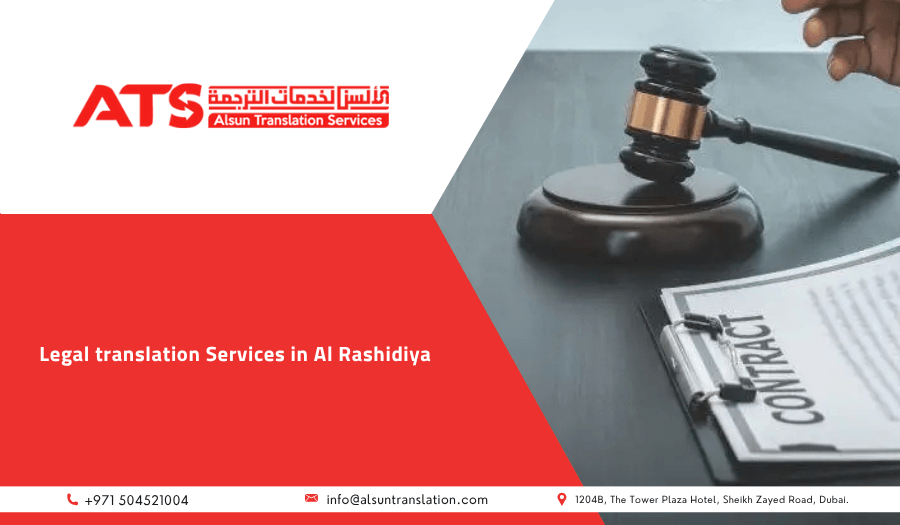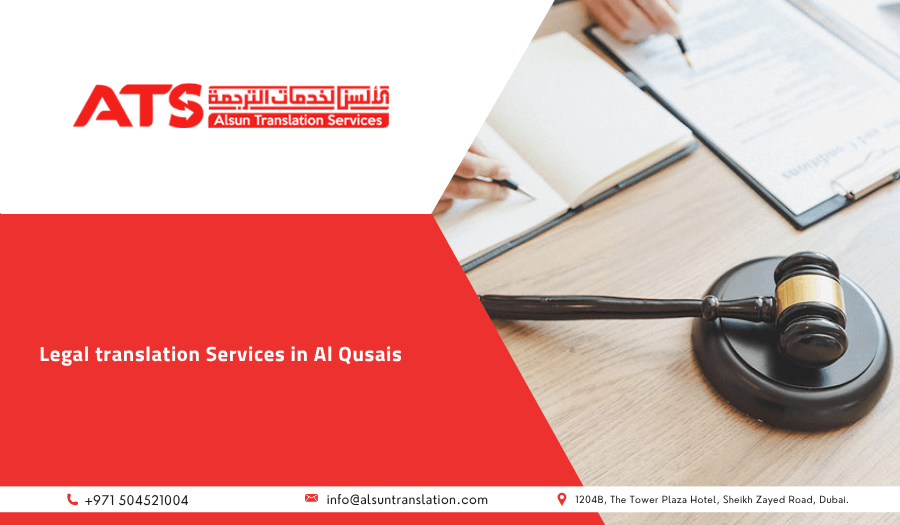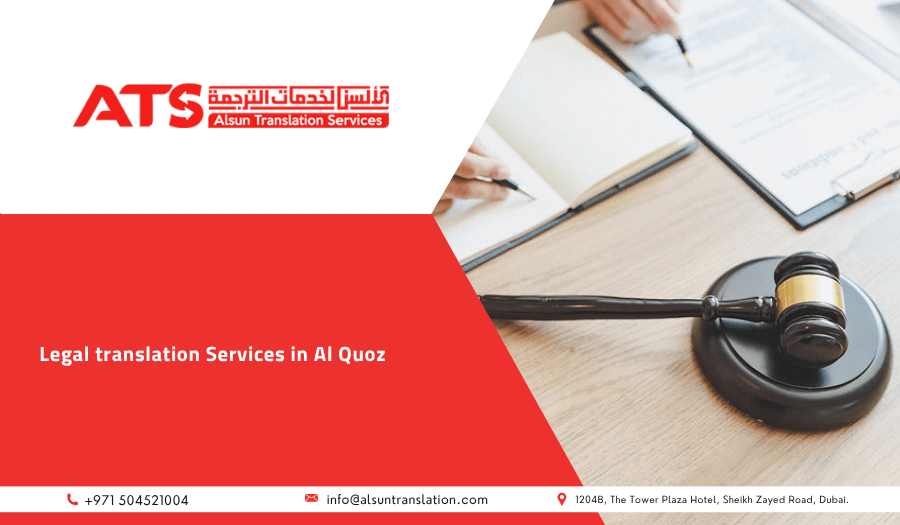Difficulties in Legal Translation: Legal translators face difficulties in translating legal texts, as some legal concepts are not easily transferrable into the target language. In fact, legal translation in Dubai is a complex matter. It requires a professional and experienced translator, who can convey the text precisely and accurately in the target language.
Legal translation is one of the most demanding fields in the translation industry. Unlike general translation, legal translation requires not only linguistic skills but also a deep understanding of the law, legal terminology, and the context of the documents.
Errors in legal translation can have serious consequences, including misinterpretation of contracts, legal disputes, or financial losses. This makes accuracy, precision, and attention to detail critical for every legal translator.
Whether translating contracts, court documents, patents, or agreements, legal translators must ensure that the meaning, intent, and legal implications are preserved exactly as in the original document.
Importance of Accuracy in Legal Translation
Accuracy is the cornerstone of legal translation. Even a small mistake in a legal document can lead to misunderstandings, disputes, or even legal liability. Legal translators must carefully choose words and phrases to ensure that the intended meaning of the original document is preserved in the target language.
For example, translating contracts, court rulings, or patents requires literal precision as well as a clear understanding of legal concepts in both the source and target languages. Any ambiguity or misinterpretation could have significant consequences for individuals, businesses, or governments.
Ultimately, accuracy in legal translation is not just about language it’s about protecting rights, obligations, and legal clarity across different legal systems.
Understanding Legal Terminology
Legal terminology is highly specialized and varies from one legal system to another. Terms that seem simple in everyday language can have specific legal meanings that must be accurately conveyed in translation.
For instance, words like “indemnity,” “arbitration,” or “jurisdiction” carry precise legal implications. Misinterpreting these terms can lead to serious contractual or legal issues.
A professional legal translator must have a strong grasp of both the source and target legal systems, ensuring that every term is translated correctly while maintaining the intended legal effect. This requires not only linguistic skills but also legal knowledge and experience.
Differences in Legal Systems Across Countries
One of the major challenges in legal translation is navigating the differences between legal systems. Laws, regulations, and legal concepts vary widely from one country to another, which can make direct translation impossible in some cases.
For example, a legal term used in common law countries like the United States or the UK may not have an exact equivalent in civil law countries like France or Germany. Translators must therefore adapt the language carefully, providing explanations or using the closest legal equivalent while preserving the original intent.
Understanding these differences is essential to ensure that legal translations are accurate, legally valid, and culturally appropriate.
Difficulties in Legal Translation English into Arabic
A legal translator needs to possess an in-depth knowledge of both legal systems involved. In this blog, we will discuss some of the challenges of legal translation from English into Arabic.
Challenges of legal translation from English into Arabic
Legal Translators need to be particularly careful when translating legal texts, as there is no room for errors within the field of law. The following are the major challenges legal translators face when translating from English into Arabic:
1. Legal Systems
Differences in legal systems in countries whose native language is English and countries whose native language is Arabic pose many problems in translating legal texts. The difference between English and Arabic law is that the Arabic legal system is an example of civil law, other whereas the English legal system is based on the common law.
Also, each legal system is formed within a certain social and political framework related to the language, uses, and habits of a particular group. Thus, this framework differs from one country to another. This makes the translation of legal texts more difficult. So, the legal translator should have a good knowledge of the legal system in both English and Arabic languages.
2. Absence of Equivalence
The absence of an equivalent of certain concepts in Arabic is another challenge faced by legal Translators.
The case of term “Probation Officer” is used in the USA to refer to the officer who observes a person who is released from prison under certain conditions. In order to solve such a problem, a translator may add a note to explain the concept.
3. Culture Differences
Arabic and English are derived from different cultures and represent different influences. The legal language of a text is influenced by the culture of the country, which also influences the structure of the legal system.
Thus, legal translation cannot be done without taking into account the cultural aspects and differences in legal systems. Legal Translators need to understand the culture of the target language in order to translate legal texts accurately.
4. Legal Terminology
In Legal Translation, it is important to convey the exact meaning of the source language to the target language. The translator may not find the exact terminological equivalent in the two languages, because of social, cultural, and historical differences that influence the legal systems.
So, legal translators are required to understand the exact meanings of legal terminology in both languages and research the legal concept of a term in the source language when the equivalent term in the target language is not clear in order to provide an accurate and consistent translation.
Also know: Translation Services Text Expansion and Contraction
Conclusion
The many differences between English and Arabic history, tradition, and legal systems pose a great challenge for any translator working on legal translation. Thus, a professional translator should be aware of such differences to overcome the difficulties in Legal translation from English into Arabic and produce a high-quality translation.
The Translators should be aware to overcome these difficulties to achieve progress.
Need help with legal translation challenges? Our expert team can overcome the 4 common difficulties. Contact us today for professional legal translation services and ensure accurate and reliable translations.
Also know: 6 Tips for Superior Technical Translation
FAQs
What makes legal translation more challenging than other types of translation?
Legal translation requires precise terminology, understanding of laws in both the source and target countries, and the ability to maintain legal meaning without ambiguity.
How do cultural differences affect legal translation?
Legal systems and concepts vary across countries, so translators must adapt terms while ensuring the meaning remains legally accurate.
Can machine translation be used for legal documents?
Machine translation can help with general understanding, but it is not reliable for legal documents due to the need for precision and context.
What are common errors in legal translation?
Common errors include mistranslation of legal terms, incorrect formatting, omission of clauses, or misinterpretation of legal intent.
How can I ensure a legal translation is accurate and valid?
Always use certified professional legal translators familiar with the legal systems of both languages and ensure translations are reviewed for accuracy and compliance.



